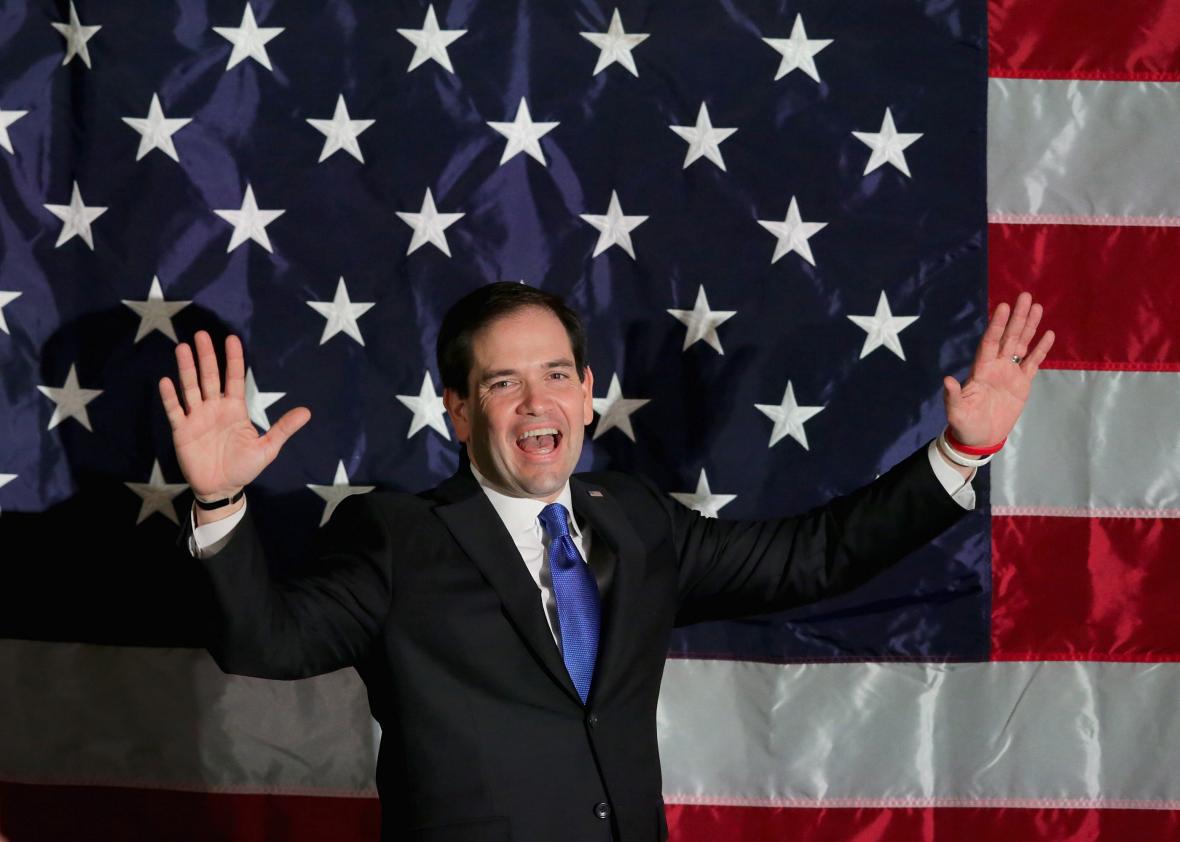At this point, a Republican tax plan would not be a Republican tax plan if it weren’t a morally and mathematically risible giveaway to America’s wealthy. The latest reminder of this fact comes to us from the nonpartisan Tax Policy Center, which Thursday released an assessment of Florida Sen. Marco Rubio’s especially plutocrat-friendly proposal.
Rubio’s blueprint is interesting because it drowns one big, potentially very popular idea—an expanded child tax credit of up to $2,500 per young one—in a heap of giveaways to the GOP donor class. This seems to have been part of Rubio’s strategy to appear as all things to all Republicans. But the end result is just a bit silly-looking, the tax-policy equivalent of getting drunk at Golden Corral and going overboard on the buffet line. (Oooh, pot roast. Oooh, banana pudding. Oooh, immediate expensing of capital investment.) Rubio’s plan eliminates taxes on dividends and capital gains—so you pay nothing to the IRS from money earned on stocks. It significantly lowers the corporate tax rate without really trying to balance the revenue loss. It crunches the number of income-tax brackets while lowering rates. And it eliminates the estate tax, which currently only applies to millionaires, anyway.
Total tab: $6.8 trillion during the first 10 years. (That’s more than Washington is projected to spend on the defense budget this decade, by the way.) Then, another $8 trillion over the next 10.
The biggest beneficiaries of this tax largesse are, of course, the affluent. By 2025, more than 70 percent of these tax cuts go to the highest-earning fifth percent of tax payers; more than 40 percent go to the top 1 percent. The average taxpayer of the top 0.1 percent of taxpayers would get a $1.12 million break. The average taxpayer in the poorest 20 percent of Americans would get $232 under the Rubio plan.
It didn’t have to be this way. One can sort of imagine a world in which Rubio would have campaigned primarily on his expanded child tax credit, which alone costs more than $1.2 trillion over a decade. It would have been an ambitious, middle-class-friendly tax cut that, while perhaps not enough to satiate the Wall Street Journal’s editorial board, would have at least distinguished Rubio’s economic thinking as something other than cartoonish supply-siderism.
Of course, Republicans (including the candidate’s advisers) argue that Rubio’s tax plan would unleash a surge of economic growth that would help make up for the lost revenue. But mainstream economics suggests that insofar as tax cuts are good for long-term growth at all, they only help if they’re balanced by spending cuts. And, as Jonathan Chait illustrated at length earlier Thursday, Rubio, who among other things wants to increase defense spending, makes only the most pitiful gestures toward balancing his budget math.
But who knows. Maybe Rubio is waiting for after the campaign to make the numbers work. If that’s the case, his plan isn’t so much laughable as cruel, as the spending cuts necessary to balance his tax cuts would almost certainly require decimating federal programs that service the poor.
Remember, Rubio is fighting to represent the Republican mainstream. He’s the conservative establishment’s vision at work.
Read more of Slate’s coverage of the 2016 presidential election.
